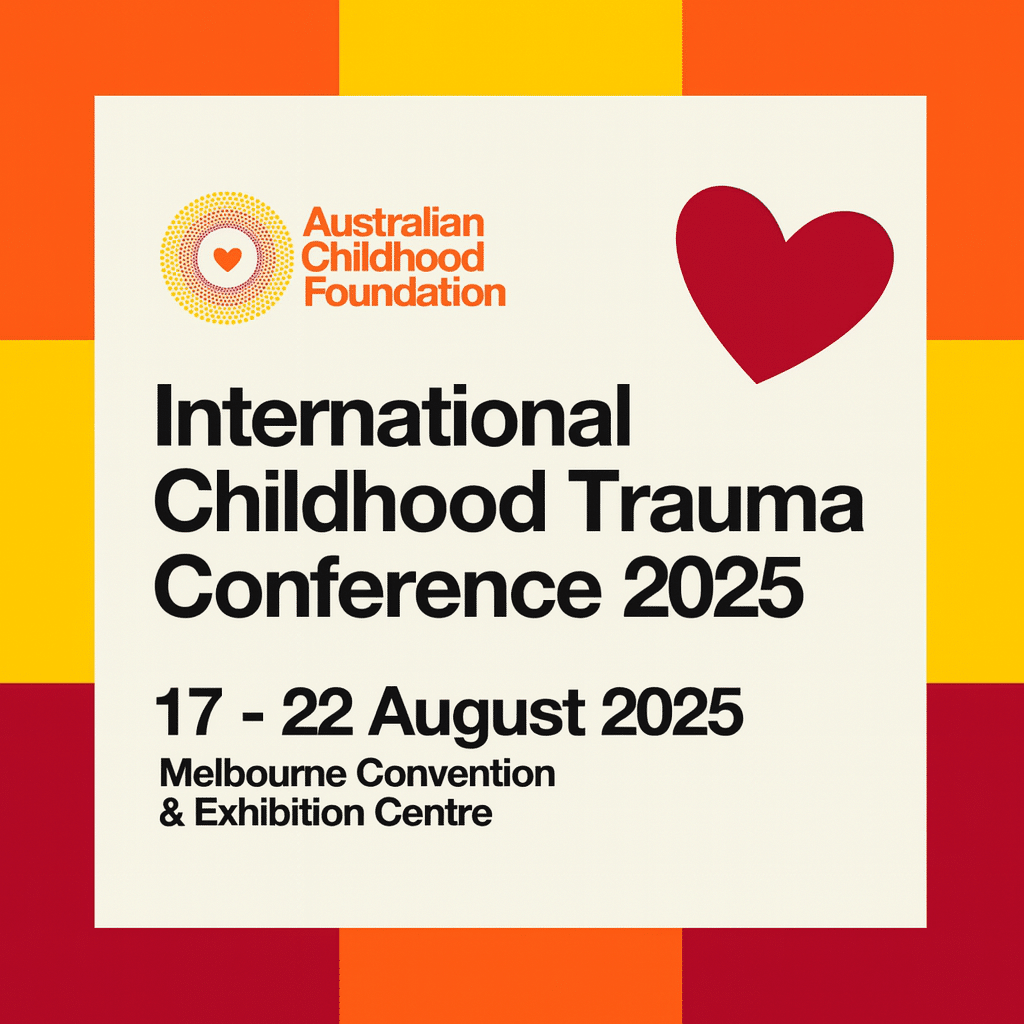
I recently attended the 2025 conference hosted by the Australian Childhood Foundation, centred around the theme Transforming Trauma: Connection and Healing. The event was a powerful reminder that healing is a collective journey built through connection, collaboration, and community. Over six days, delegates engaged in keynote presentations, interactive workshops, masterclasses, and symposium-style discussions.
The program also included lived experience storytelling, First Nations wisdom, and opportunities to share practice and research. Key themes included relational safety, neurodivergence and trauma, harmful sexual behaviour, and the impact of connection to self, others, place, community, and Country. Notable speakers included Dan Siegel, Ruth Lanius, Deb Dana, Jon Baylin, Rachel Yehuda, Paul Gilbert, and Dan Hughes and more.
Together with Annelise and Tanya, I attended three full days of the conference, participating in lectures, masterclasses, and keynote sessions. For me the experience was a rich blend of learning new skills, exploring emerging topics, and engaging with current reforms. Survivor stories shared during the sessions were deeply moving and added a powerful layer of lived experience. I was especially drawn to sessions on reconnecting the brain and body in trauma recovery, resilience in post-traumatic growth, and cultivating compassion in therapeutic work by Prof. Ruth Lanius.
Paul Gilbert’s Compassion-Focused Therapy model showed how activating the compassionate mind state can help regulate emotions, particularly in clients with high shame and guilt. Rachel Yehuda’s research on intergenerational trauma highlighted how trauma leaves biological traces – such as epigenetic changes – that can be passed down to children, influencing stress responses and mental health.
Other key learnings included Deb Dana’s Polyvagal Theory, which offered practical tools for helping clients move from states of protection to connection. Jon Baylin’s Triple Trouble model explained how early adversity affects core brain systems and how relational approaches can support healing. Dan Hughes reinforced the importance of attachment-focused therapy through the PACE model (Playfulness, Acceptance, Curiosity, Empathy).
One of the most impactful sessions for me was Trauma in the Next Generation, which explored how trauma affects entire family systems and communities. Additional insights from Dr. Johanna Lynch on building patient safety through relational care, in medical settings and David Kessler’s strategies for managing grief through movement and yoga, added further depth.
Overall, it was an incredible experience filled with new learning and inspiration. As a first-time attendee, I did find navigating the large venue and choosing sessions a bit overwhelming, and would have appreciated more guidance from the organisers to help structure the day.
Written by Kriti – HELP Youth Therapist

